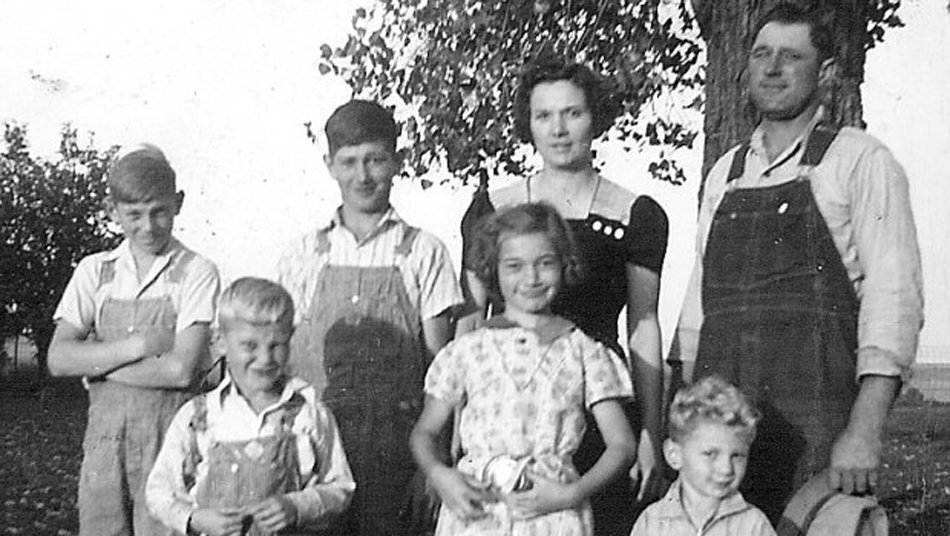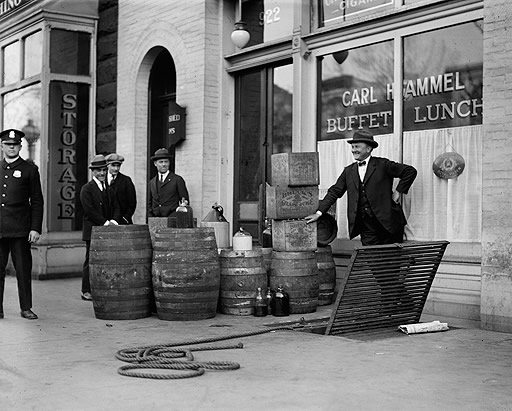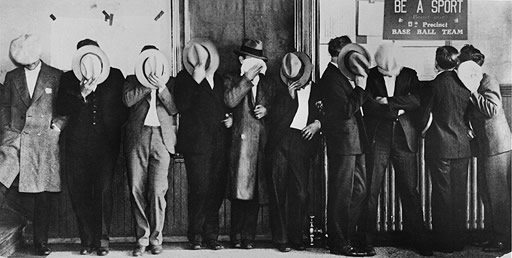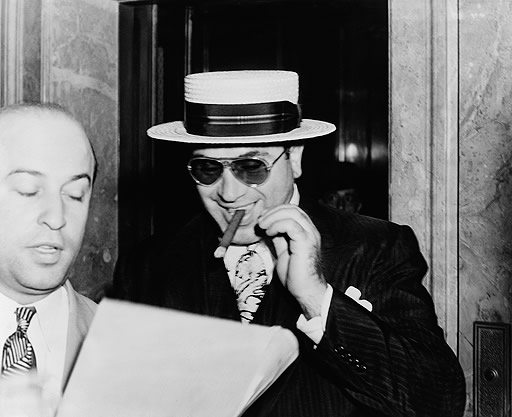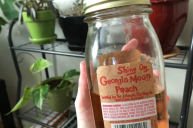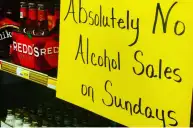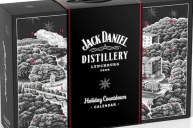On January 17, 1920, the 18th Amendment officially took effect nationwide. If you're not up to snuff on your American history, the 18th Amendment was known as national Prohibition. It called for the banning of the manufacture, sale, or transportation of alcoholic beverage. It even banned "intoxicating liquors", except for those used in religious services, of course. Led by the Temperance Movement, Prohibition was officially ratified on January 16, 1920 and fell into place the next day. Today, January 17 is known as National Bootlegger's Day.
Videos by Wide Open Country
The 18th Amendment was finally repealed in 1933 when the 21st Amendment was ratified on December 5. So let's take a look back at just how Prohibition began and what it meant to American history.
Prohibition 101
The Temperance Movement began in the early 1800s in an effort to promote the complete abstinence of alcohol from public life. Popular in religious groups, and heavily motivated by religion, churches paved the way for the group's platform to take hold. The national organization began in 1895 after decades of lobbying, and finally, the Volstead Act, or the Eighteenth Amendment, was passed on October 28, 1919.
President Woodrow Will vetoed the National Prohibition Act, but Congress overrode the veto. It was set to begin on January 17, 1920. Only two states rejected the amendment: Connecticut and Rhode Island.
Of course we all know what follows. Distilling illegal liquor reached a fever pitch in the 1920s, whether in decadent city speakeasies or in the hills of Tennessee. For most families, distilling liquor wasn't about breaking the law, it was about making ends meet. Poverty threatened to break apart rural families at the seams (read more about that here), and often, moonshining was just another way to put a little extra food on the table.
Why January 17?
Why is January 17 listed as National Bootlegger's Day? Apart from the beginning of Prohibition, January 17 marks the birth of Templeton Rye. A rye whiskey made in the small town of Templeton, Iowa during Prohibition as a way for farmers to supplement their incomes, it was considered some of the highest quality. The liquor circulated throughout the United States, and was a frequent offering at Michigan, Chicago, Kansas City, and Omaha speakeasies.
Famous gangster Al Capone, who only drank "The Good Stuff", drank Templeton Rye, which is just part of its legendary history. With the gangster's seal of approval, it became known colloquially as Capone's Whiskey and thirsty Americans deprived of regular liquor sales began to rave about its smoothness. In 2006, Templeton Rye Spirits officially launched and have begun to embrace their Prohibition-era history with bootleggers, Al Capone, and its nickname.
Interestingly enough, January 17, 1899 was Al Capone's birthday. The leader of the bootlegging empire was known to only enjoy Alphonse Kerkhoff's rye whiskey. January 17 is also the birthday of Templeton Rye Whiskey, which still celebrates and uses its Prohibition era recipe today.
Led to legal production with the help of Master Distiller Meryl Kerkhoff, who passed away in 2010, Templeton regained its prestige in the American whiskey market. Aged in charred new oak barrels, Templeton Rye is more than just a whiskey, it's a piece of Midwest history.
https://www.instagram.com/p/BbnK9ZEhU8a/?taken-by=templetonryewhiskey
Officially made a holiday in June 2015 by the Registrar of National Day Calendar, the holiday was submitted by Infinium Spirits, representation for Templeton Rye Whiskey. After securing a permanent place in the American vocabulary, this is one recipe that is truly our bootlegger's brew.
So what better way to celebrate this national holiday by toasting to the ingenuity of enterprising Americans who knew that, in the name of "The Good Stuff", some rules were meant to be broken? To learn more about Templeton Rye, check out their story.
